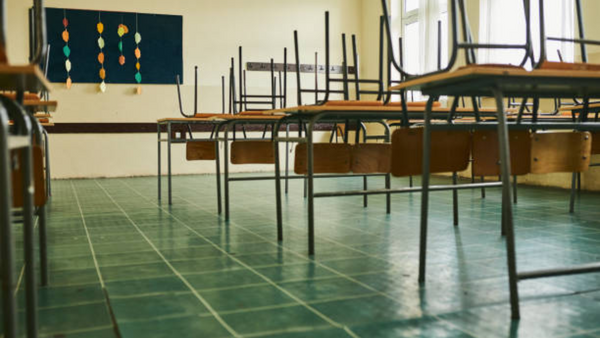
Mental health difficulties should be a valid reason for children to miss school while fines aimed at parents should be kept as a “last resort”, according to MPs on the Commons education committee.
The committee’s report into rising levels of persistent absence among disadvantaged families in England warns that fining parents for absences may be less of a deterrent since the Covid pandemic, and even counterproductive among low-income families with financial struggles.
“We heard that fines do not address the barriers that low-income families face and can be counterproductive by adding to difficult financial circumstances. Families are struggling with high school costs and in some cases, fining is not an appropriate, compassionate, or helpful response,” the MPs reported.
The committee urged the Department for Education (DfE) to do more to help disadvantaged students return to the classroom, after accusing the government of “grossly inadequate” mental health support for children as well as cuts affecting after-school activities.
The MPs want the DfE to create a new category of authorised pupil absences due to mental health difficulties, without requiring families to provide medical evidence. The DfE does not currently record pupil absences for mental health reasons.
Robin Walker, the Conservative MP who chairs the committee, said there had been “worrying changes” in parents’ attitudes, with recent research showing that parents have become more sceptical about the need for their children to regularly attend school.
He said: “Sky-high waiting lists for children’s mental health services, and some children with special needs not getting the right support quickly enough, are also putting incredible pressure on families and schools.
“The increase in children suffering from mental health problems is deeply troubling and it is evident that our health service can’t meet this growing demand, leaving schools to fill the gaps.”
The select committee’s report chimes with research published last week, which found that some parents no longer believed it was their responsibility to ensure that their child was in school every day. Persistent absence – when pupils miss 10% or more of sessions – has more than doubled since before the pandemic.
The criticisms of the use of fines – usually fixed penalty notices of £60 per child levied by local authorities – were supported by Paul Whiteman, the general secretary of the National Association of Head Teachers, who said it was “becoming clear” that fines were ineffective in tackling widespread absences.
“Unless more is done to find out the reasons behind continual periods of absence and tackle the root causes behind persistent absenteeism, fining families is unlikely to solve the underlying issues,” Whiteman said.
The use of fines was complicated by the DfE’s failure to set a national policy, leading to wide variations among local authorities over which families are fined and for what reasons.
The committee said: “We recommend the [DfE] instruct schools and local authorities to explore methods of support for pupils and families before the use of fines or prosecution, ensuring that legal intervention is a last resort only.”
Louise Gittins, the chair of the Local Government Association’s children and young people board, said councils lacked alternative powers to improve school attendance rates, such as being able to meet face-to-face with children, or by directing academies to accept pupils who were unable to secure a school place.
The committee also cited the need for free school meals provision to be widened to include children from struggling families who are currently ineligible. It also identified other barriers, such as transport and school uniform costs.
A DfE spokesperson said: “Attendance rates since the pandemic have improved and the vast majority of children are now in school and learning but we remain focused on ensuring no child falls through the cracks.
“We recently announced an expansion to our attendance hubs and mentors programme and we are also working closely with schools, trusts, governing bodies and local authorities to identify pupils in need of additional support.”










